Timeline
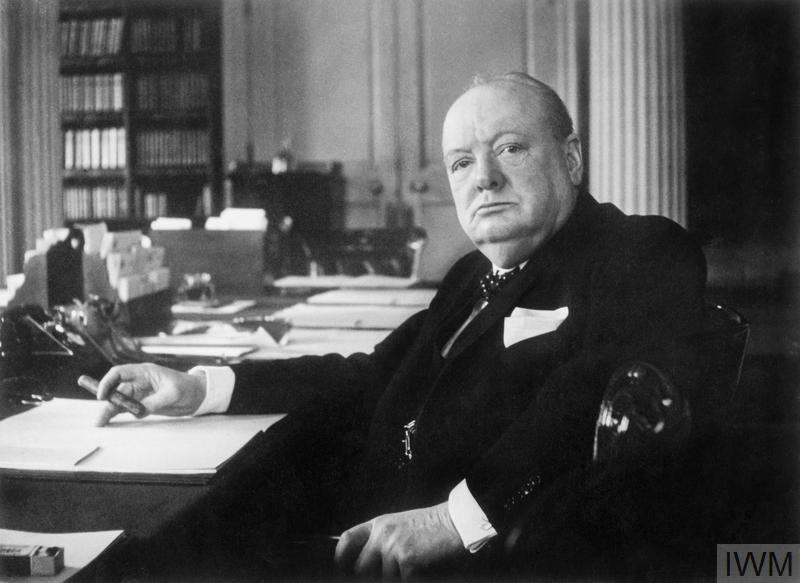
Winston Churchill at his seat in the Cabinet Room at No 10 Downing Street, London. © IWM (MH 26392)
Winston Leonard Spencer Churchill was born at Blenheim Palace in Oxfordshire on St Andrew’s Day, 30 November 1874. On his father’s side, he was a child of the aristocracy; his father was the Conservative politician, Lord Randolph Henry Spencer-Churchill. His mother was the American-born beauty, Jennie Jerome, daughter of a New York stockbroker, financier and newspaper proprietor Leonard Jerome.
Read about his Childhood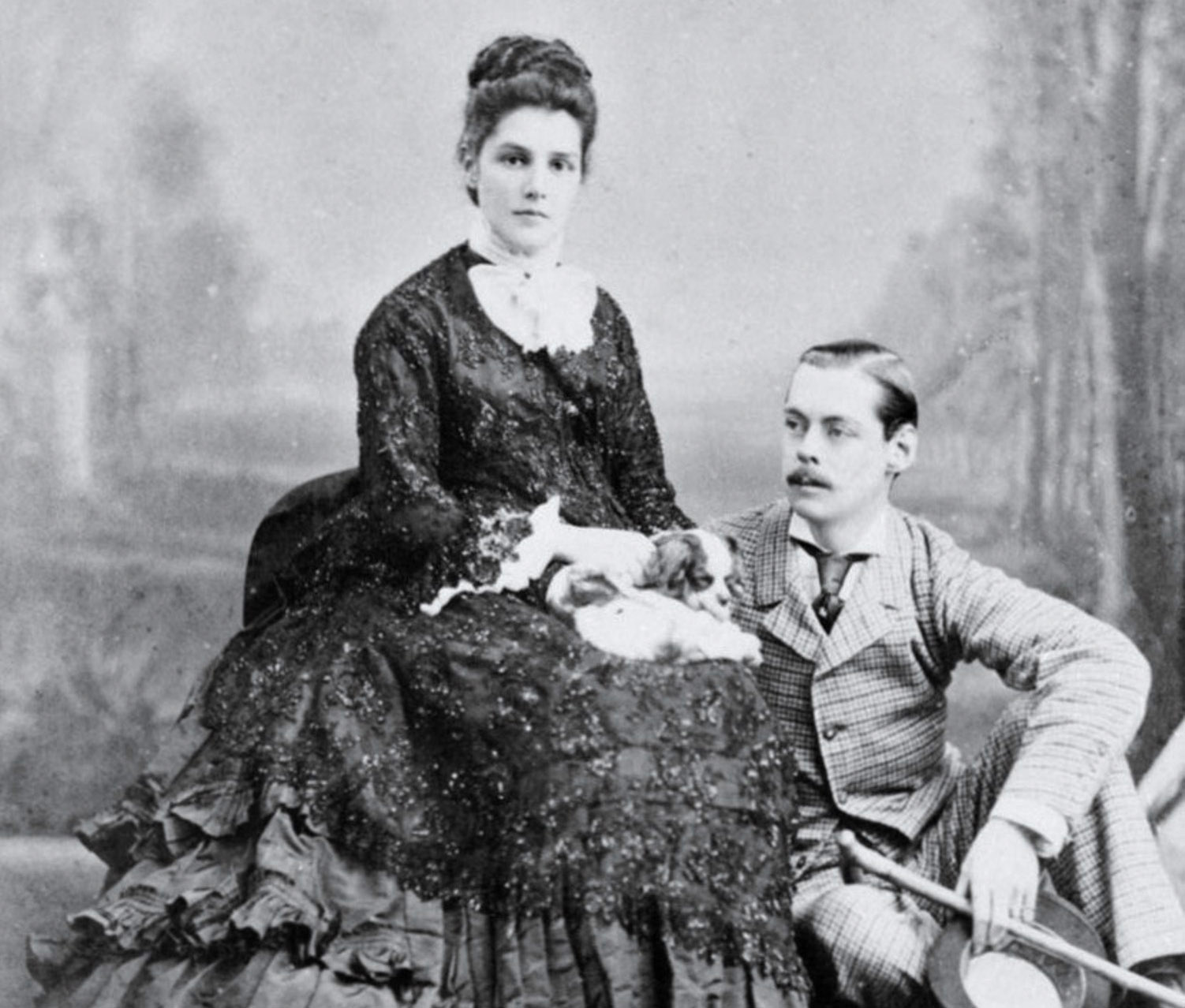
Lord Randolph Churchill married Jennie Jerome on April 15, 1874 at the British Embassy in Paris © Churchill Archives Centre
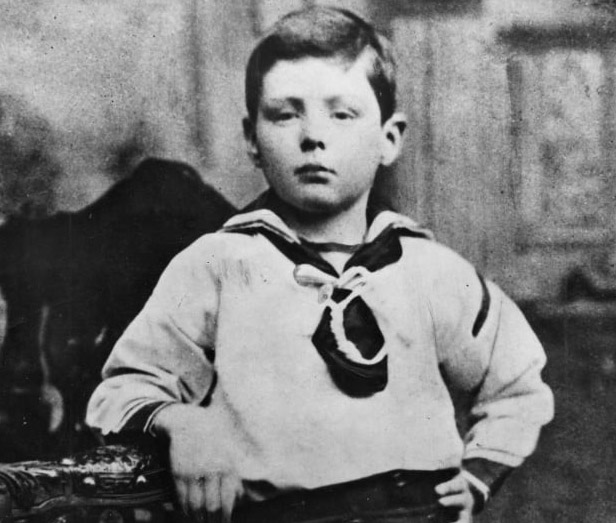
Young Winston Churchill © Churchill Archives, Broadwater Collection
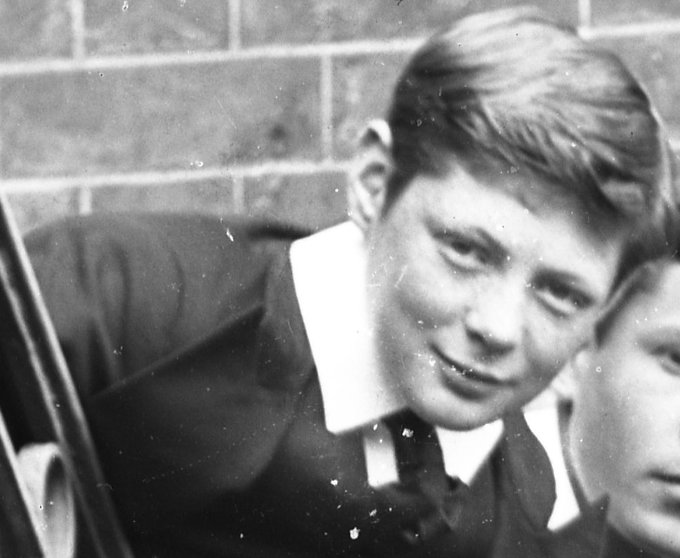
Winston Churchill at Harrow School, 1892
The death of Lord Randolph Churchill on 24 January 1895, aged just forty-five, clearly had a profound effect. Churchill became a cavalry officer in the 4th Queen’s Own Hussars only a month later. In the five years between 1895 and 1900, he sought to get himself transferred to as many dangerous places as possible and then writing up his experiences as newspaper articles and books.
Read more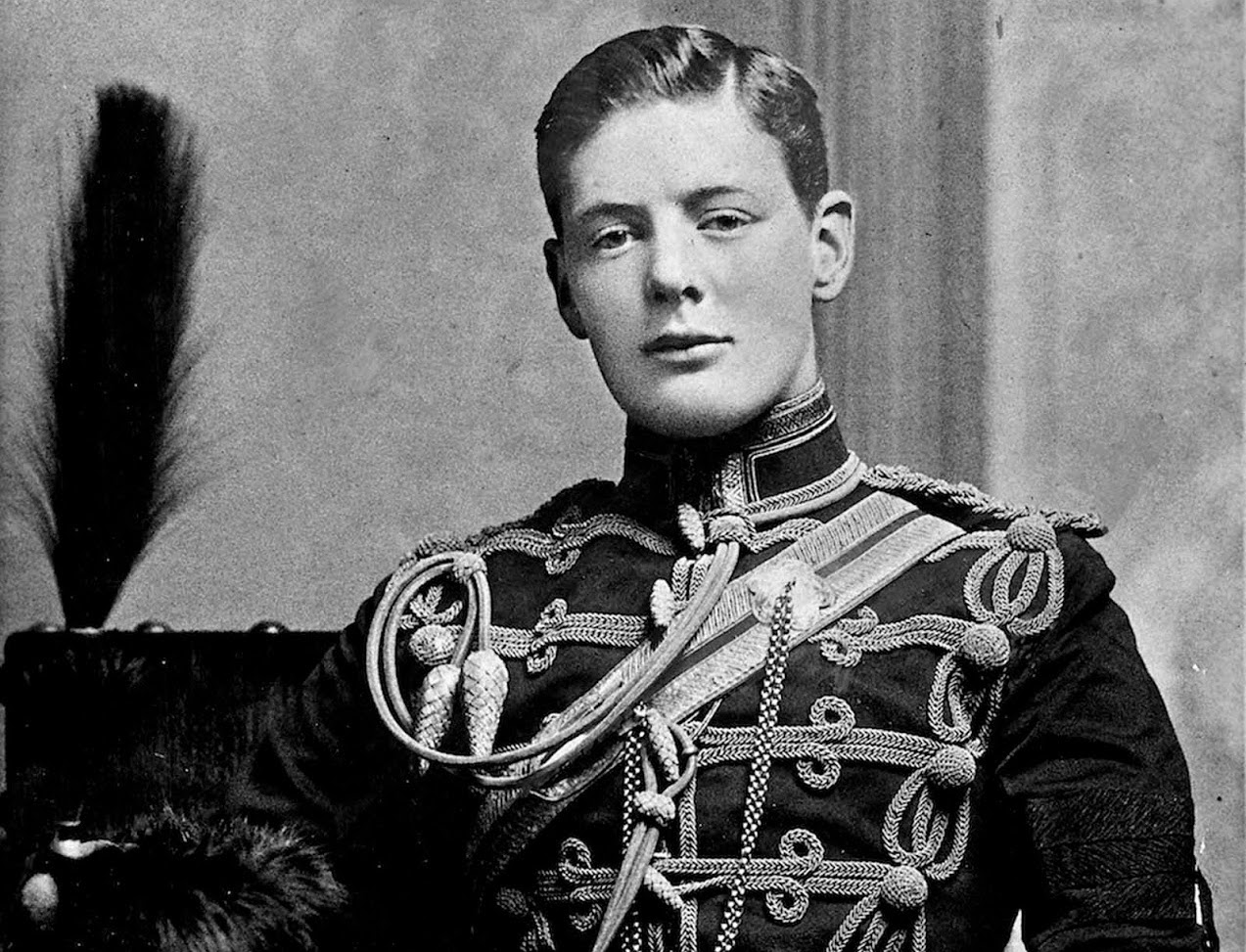
Young Winston Churchill in the uniform of the Queen's Own 4th Hussars
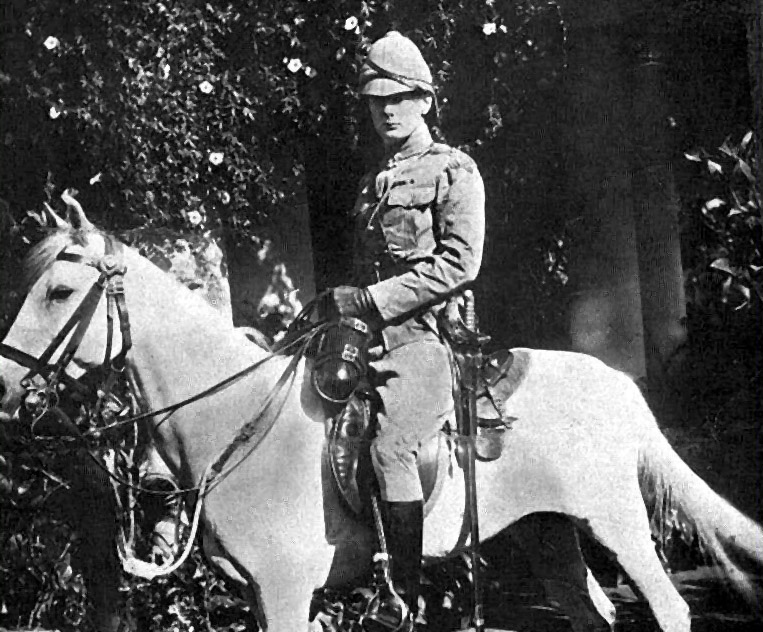
Second-Lieutenant Winston Churchill in the 4th Queen's Own Hussars in India, 1896
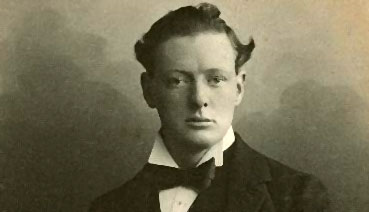
Winston Churchill as a young politician © National Portrait Gallery, London
Churchill won his first election to Parliament as a Conservative (Tory) for the town of Oldham in 1900. He quickly made a name for himself as a rising politician, though he was controversial, and in 1904 he left his father's party and joined the Liberals. Early in his career, he held a succession of senior Government roles, and in 1924, he returned to the Conservative Party as Chancellor of the Exchequer. He was talented, but many mistrusted him.
Discover more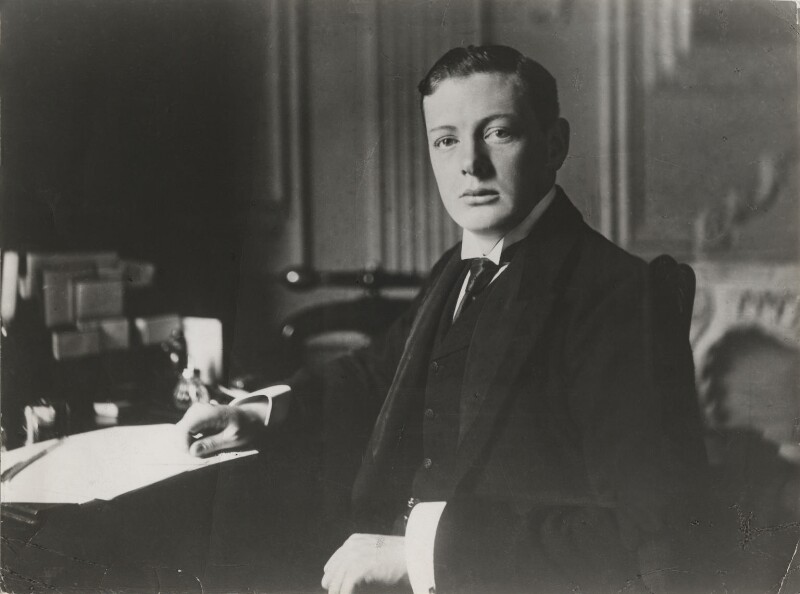
Winston Churchill as a young politician, 30 May 1899 © National Portrait Gallery, London
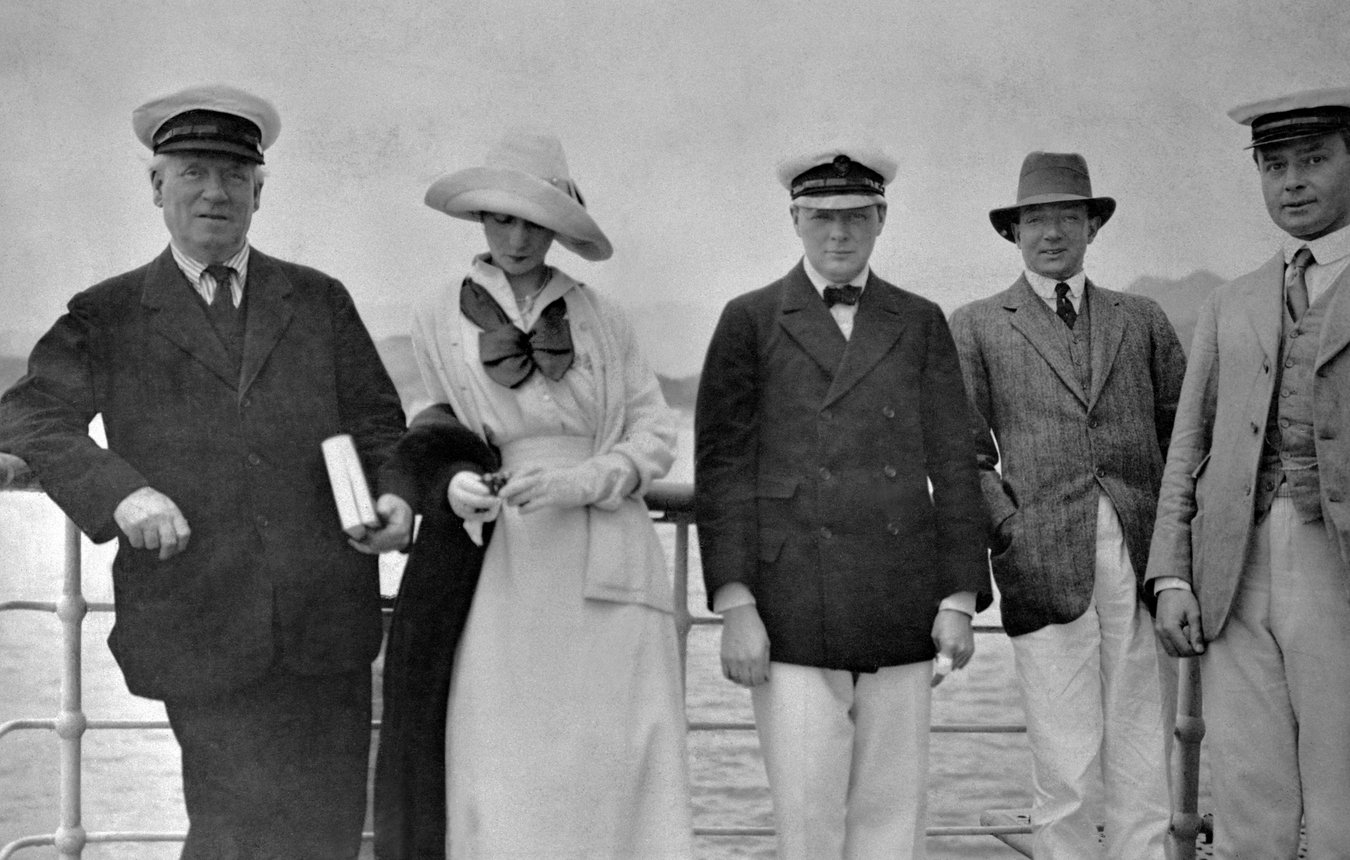
1912 Winston Churchill, 1st Lord of the Admiralty on board the 'Enchantress', cruising in the Mediterranean, Contributor: Fremantle / Alamy.com HGF9BP
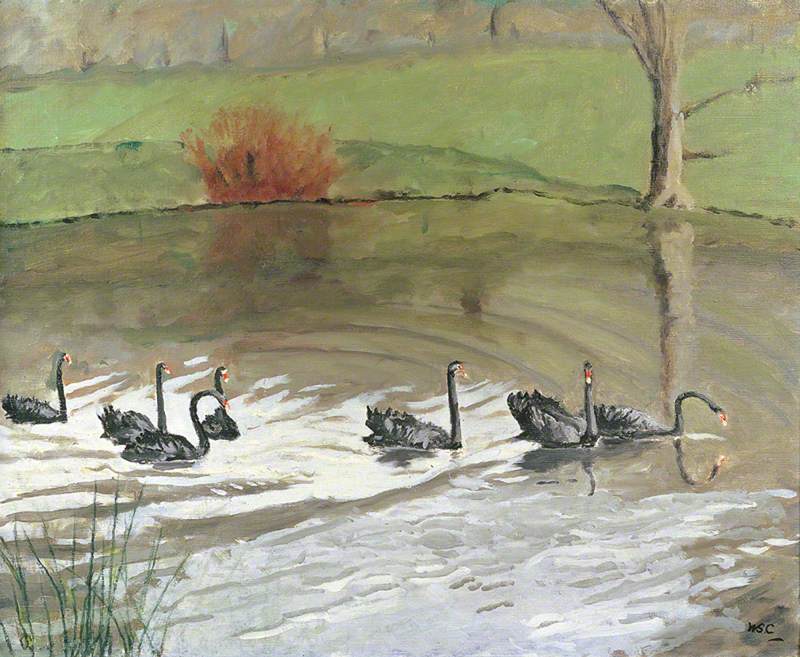
Churchill’s painting of the black swans of Chartwell
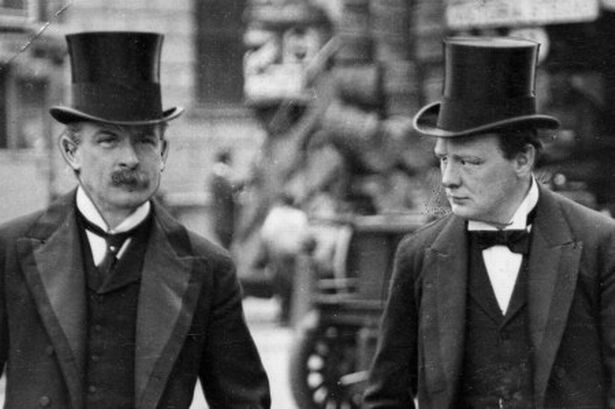
David Lloyd George and Winston Churchill in 1910
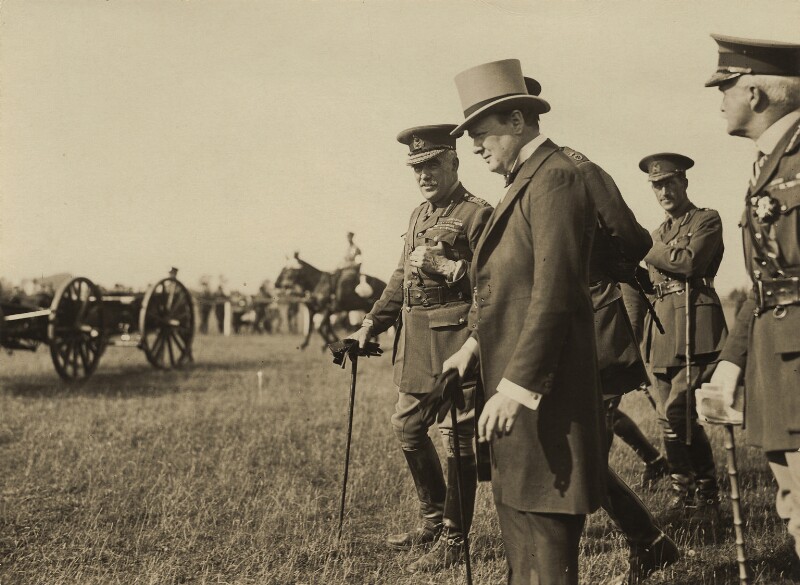
Winston Churchill and Sir William Robert Robertson in August 1919. © National Portrait Gallery, London
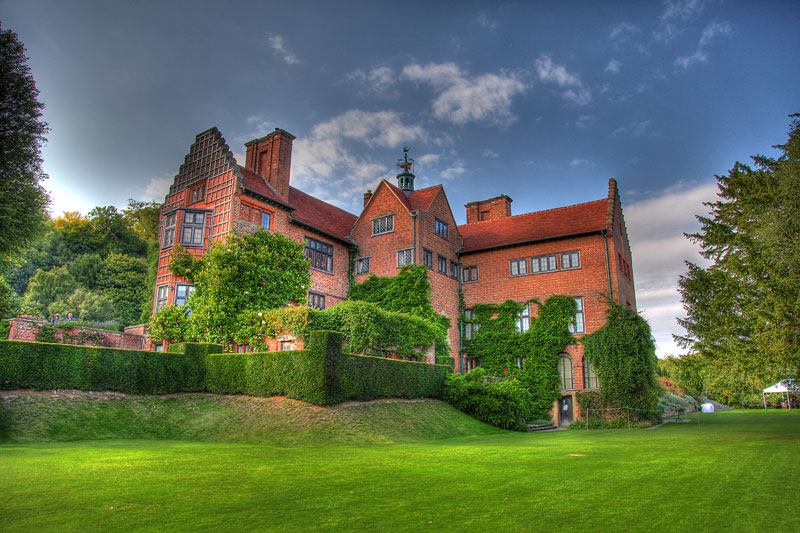
Winston and Clementine's country home Chartwell in Kent
By the early 1930s, Churchill no longer had a Government position. He continued to write books and newspaper articles, but many, including him, thought his political career was over. He spoke out about his opposition to Hitler’s new Nazi dictatorship in Germany and made calls for British rearmament. After the Munich Crisis of 1938, there was a growing consensus that he was right. When war finally broke out in September 1939, Prime Minister Neville Chamberlain had no choice but to make him First Lord of the Admiralty.
Read more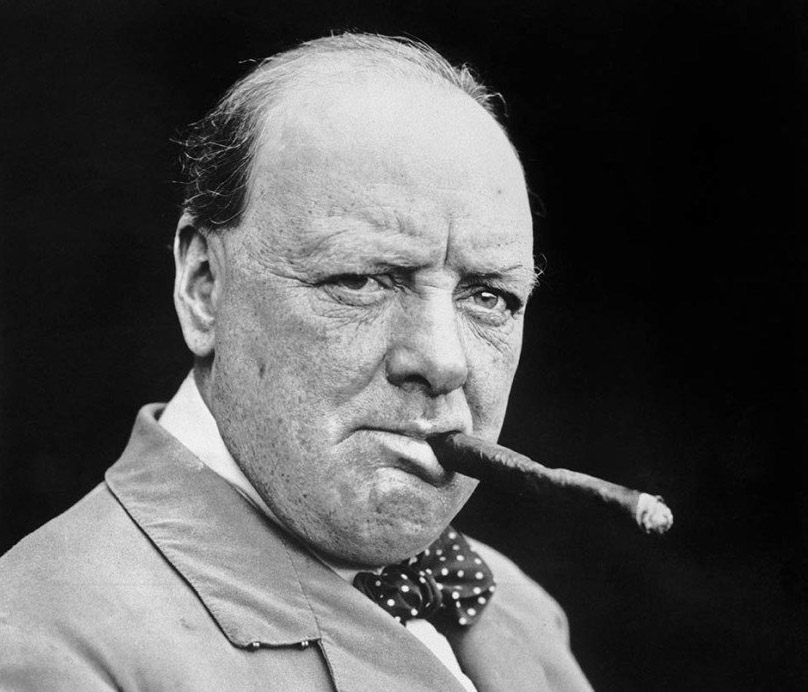
Winston Churchill with his trademark cigar in the 1930s
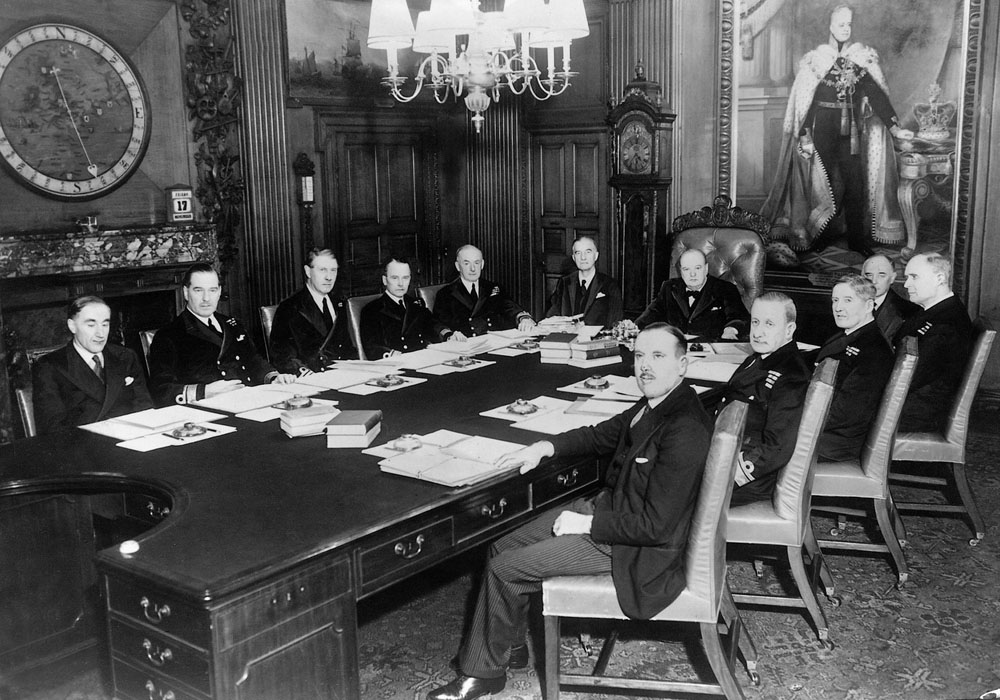
Winston Churchill, First Lord of the Admiralty, at a meeting of the Admiralty, 1939. Sueddeutsche Zeitung Photo/Alamy.com
Churchill became Prime Minister on 10 May 1940, the very day that Hitler invaded France and the Low Countries. The first weeks of his premiership were marked by military disaster, as France surrendered and the British army was evacuated from Dunkirk. Churchill carefully crafted his famous speeches to raise British morale while sending a message of defiance to Germany. Churchill's policy was 'victory at all costs' through 'blood, toil, tears and sweat'. He came to personify the British spirit with his ever-present cigar and V for Victory salute.
Discover his war years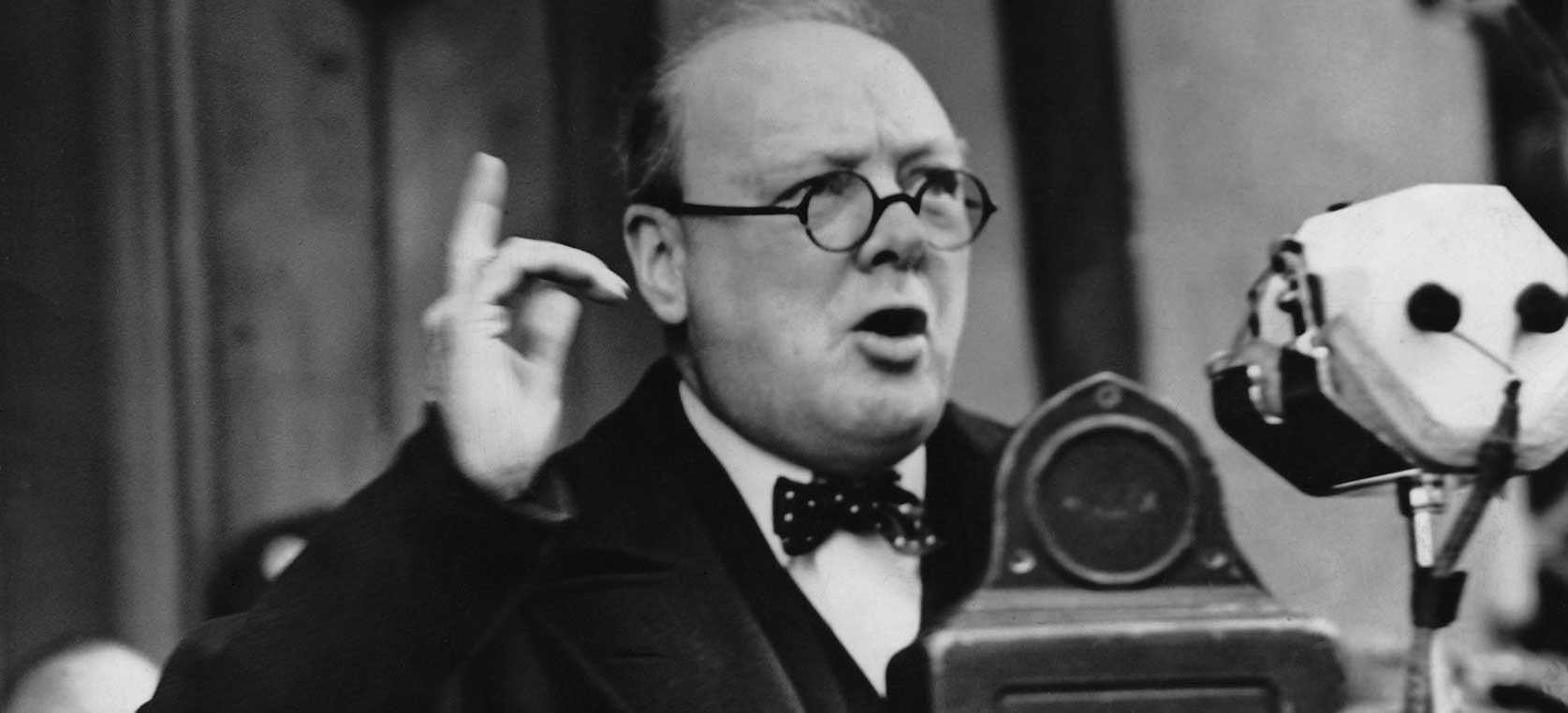
Winston Churchill giving a speech during the Second World War
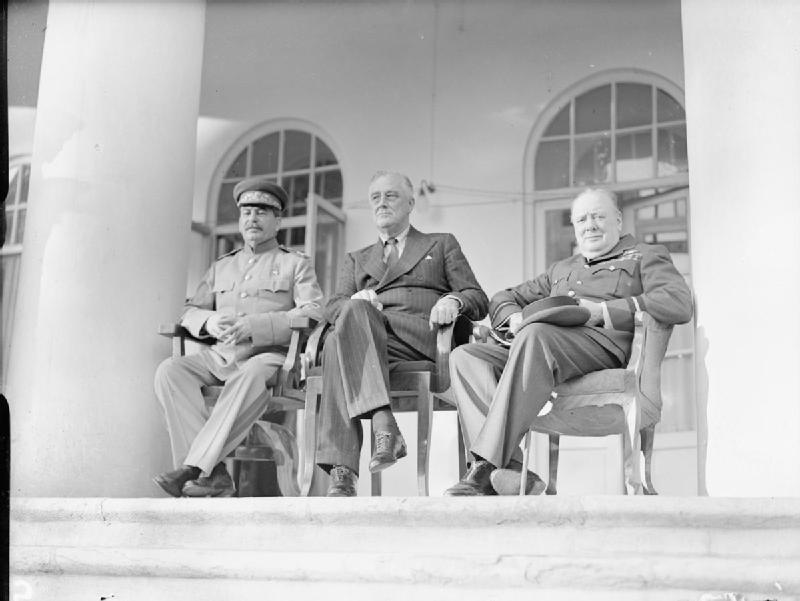
The 'Big Three' at the Tehran Conference, 1943. Marshal Josef Stalin, President Franklin D Roosevelt and Prime Minister Winston Churchill. ©IWM A 20711
Churchill’s world seemed to have ended with WWII. The British Empire was lost, Britain was bankrupt, and his Conservative Party was voted out of office. Once again, he refused to accept defeat, re-launching himself on the international stage with a powerful warning about the Soviet ‘Iron Curtain’. He returned as a peacetime Prime Minister in 1951, participating in the Coronation of Queen Elizabeth II. Poor health finally forced his retirement in 1955 though he remained a Member of Parliament until June 1964.
Read more about his later yearsSir Martin Gilbert, in the final volume of his epic biography Winston S Churchill, said, ‘Men and women wept when they heard the news of Churchill’s death. Nearly ten years had passed since his last months as Prime Minister, a quarter of a century since his “finest hour” in 1940. He had died seventy years to the day after his father, Lord Randolph Churchill, the man whose respect and approval he would have so liked to have won, but who had not lived long enough to see even the earliest phases of his son’s remarkable career.’
Find out moreLorem ipsum dolor sit amet consectetur adipisicing elit. Error amet eaque delectus iure tempore culpa praesentium voluptatibus non veniam accusamus veritatis dicta optio adipisci id ut, ipsam saepe, consequatur molestiae!
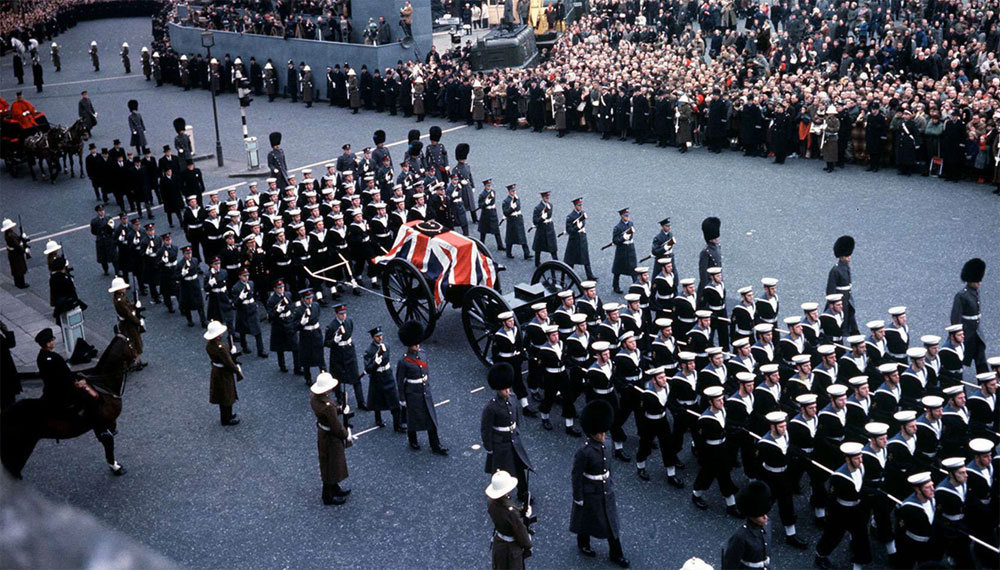
Winston Churchill's funeral procession, 30 January 1965
Lorem ipsum dolor sit amet consectetur adipisicing elit. Error amet eaque delectus iure tempore culpa praesentium voluptatibus non veniam accusamus veritatis dicta optio adipisci id ut, ipsam saepe, consequatur molestiae!
Lorem ipsum dolor sit amet consectetur adipisicing elit. Error amet eaque delectus iure tempore culpa praesentium voluptatibus non veniam accusamus veritatis dicta optio adipisci id ut, ipsam saepe, consequatur molestiae!
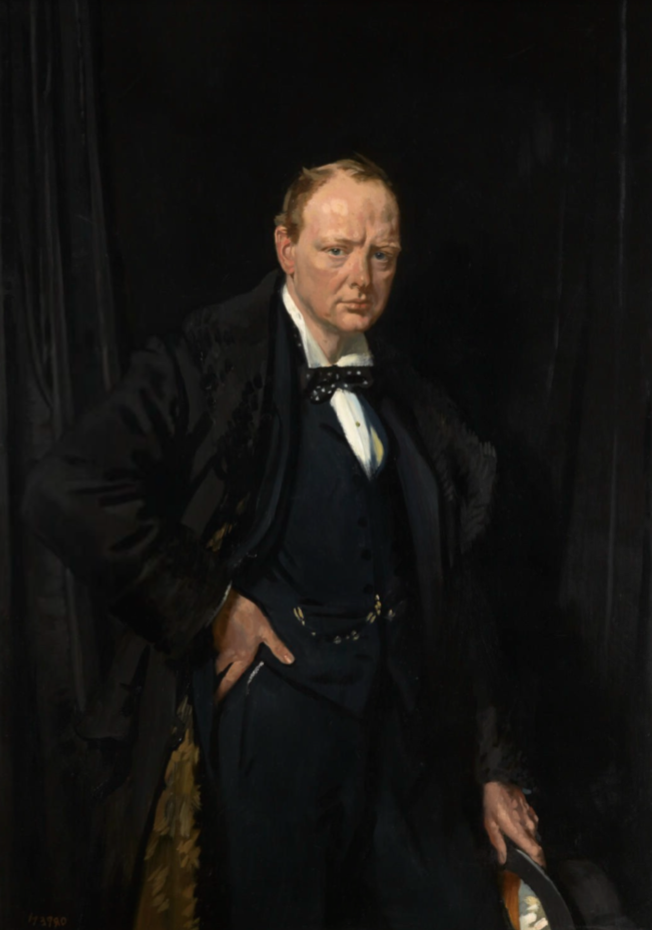
Churchill became Prime Minister of a national government on 10 May 1940, the very day that Hitler invaded France and the Low Countries. The first few weeks of his premiership were marked by military disaster, as France surrendered and the British army was evacuated from Dunkirk. The United Kingdom then faced direct attack in the Battle of Britain and the Blitz.
Churchill’s famous speeches and broadcasts were carefully constructed to raise British morale while sending a message of defiance to Germany and a call for support to the United States. Churchill’s policy was ‘victory at all costs’ through ‘blood, toil, tears and sweat’. Though sixty-five in 1940, he strove to take the offensive to the enemy and worked tirelessly to assemble and maintain the Grand Alliance against fascism. With his bulldog scowl, ever-present cigar and V for Victory salute he came to personify the British war effort.
To learn about the Second World War, visit the Imperial War Museums’ website.
In his lifetime, Churchill published more than 40 books in 60 volumes.
View his writingWorking to celebrate the life and achievements of a great leader.
Young ChurchilliansIn his lifetime, Churchill published more than 40 books in 60 volumes.
View PublicationsGet the Churchill Bulletin delivered to your inbox once a month.